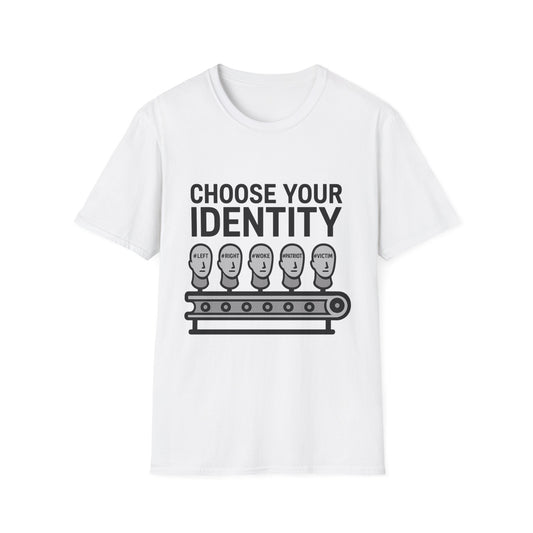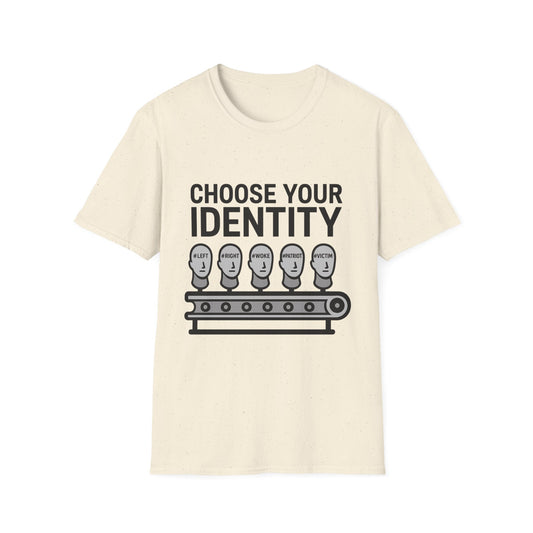
The Death of Cash: How Digital Dollars Could Kill Financial Freedom
The Great Reset of Currency: Are We Being Pushed Toward a Global Digital Dollar?
For centuries, money has been a symbol of sovereignty. It represented the power of nations, the will of economies, and the trust of the people. But today, paper is dying. Cash is fading. And in its place, a new kind of currency is rising—one you can’t hold, touch, or truly own.
The digital dollar.
At first glance, it seems like progress. Cash is dirty. Coins are clunky. Digital wallets are sleek, fast, efficient. Why carry bills when you can pay with your face? Why fumble with quarters when your phone can buy anything?
But behind this convenience lies a far deeper shift—one that could change freedom as we know it.
This isn’t just about tapping your card at checkout. It’s about the total transformation of currency into code—programmable, traceable, and controllable.
Unlike cash, which is anonymous and untraceable, a central bank digital currency (CBDC) gives governments and institutions the power to monitor every transaction. Not just how much you spend, but where, when, and on what. With a digital dollar controlled by a central authority, you no longer just own money—you’re renting it with rules.
And the groundwork is already being laid.
The U.S. Federal Reserve has openly explored the creation of a CBDC. Countries like China are already testing it in major cities. The IMF, World Economic Forum, and central banks across Europe have released white papers, proposals, and pilot programs. This isn’t theoretical. It’s happening.
And it’s being sold to you as the next evolution of finance.
You’ll hear buzzwords like “security,” “inclusion,” “innovation.” They’ll say it helps stop crime. That it protects against inflation. That it makes banking easier for the unbanked. But beneath the sales pitch, there’s a quiet truth:
A digital dollar isn’t just a new form of money. It’s a new form of control.
Imagine a future where your digital wallet can be frozen with one click. Where you can only spend on “approved” goods. Where your access to funds is based on compliance, social behavior, or carbon score. Sound extreme? Then look closer at the systems already being tested.
Programmable money means money that can be turned off, redirected, limited, or expired. With one policy change, your savings could become vouchers. With one algorithmic review, your spending could be flagged or restricted.
And all of it will be perfectly legal.
Because when money lives on a server instead of in your hand, it obeys the system—not the citizen.
The pitch for digital currency sounds irresistible on the surface. Faster payments. Greater security. No more lost wallets. But once you peel back the layers, the real implications begin to show—and they’re not just economic. They’re existential.
Central Bank Digital Currencies (CBDCs) are not the same as crypto.
They might sound similar, but they’re worlds apart. Crypto, by design, is decentralized. It exists on networks that resist control—an open ledger meant to be trustless and anonymous. But CBDCs? They are the opposite. Centralized, government-issued, trackable, programmable.
And that’s exactly the point.
With CBDCs, money becomes a tool for policy—not just a means of exchange. Governments could enforce spending limits, control interest rates directly, or even impose expiration dates on your savings. They could issue stimulus in the form of “use it or lose it” funds. They could decide when, where, and how your money can be spent—all under the banner of “economic stability.”
And what happens to dissent in a world like that?
What happens when financial systems become moral systems?
Imagine voicing an unpopular opinion online—only to find your spending restricted. Imagine skipping a mandated health measure and watching your account get flagged. Imagine buying too much gas or red meat and being penalized for your “environmental impact.”
These aren’t hypotheticals. They’re the very ideas being floated in economic forums around the world.
The shift toward digital currency also risks erasing cash altogether—and with it, the last bastion of anonymous freedom. When cash is gone, every transaction becomes a data point. Every dollar you spend becomes part of a behavioral profile. You won’t just be a customer—you’ll be a case study.
Even worse? These systems are being built behind closed doors. Without public votes. Without referendums. Quietly. Strategically. Governments and financial institutions are crafting new monetary rules in boardrooms, while the public stays distracted by trending topics and celebrity headlines.
The future of money isn’t being debated—it’s being decided.
And once it’s implemented, the public won’t be opting in. They’ll be adapting.
We’re being sold this future under the guise of innovation, but the real innovation isn’t financial. It’s psychological. It’s the quiet conditioning of a population to accept surveillance, compliance, and limited autonomy as the price of “security.”
It’s the death of cash and the rise of a monitored society, where convenience masks control, and every transaction is a step deeper into a programmable life.
And if you think this will only apply to “bad actors” or criminals, remember this:
Systems of control always start with the worst-case scenario. But they rarely stay there.
Once the framework exists, it can be applied to anyone. And history has shown us—time and time again—that power, once centralized, is never given back freely.
So what does life look like under a fully digital, government-issued currency?
It looks efficient. Polished. Convenient. On the surface, everything works better. No more lost cards. Instant tax refunds. Automated budgeting. Every cent accounted for in real time. A world where “user error” in money management becomes a thing of the past.
But that’s exactly what makes it dangerous.
Because with that convenience comes total visibility. And with visibility comes control. In the wrong hands, programmable money doesn’t just track your behavior—it modifies it.
Spend too much on “unapproved” items? Get a warning or fine. Step out of line politically? Watch your account freeze or slow. Travel too far, give too much to a certain cause, buy from the wrong merchant—suddenly, your financial freedom becomes a privilege, not a right.
And it’s all justified in the name of “safety.”
What starts as fraud prevention becomes behavior management. What starts as financial reform becomes social engineering. And before you realize it, every dollar you spend is a vote for or against a system that sees you less as a citizen and more as a node in a control grid.
This is how freedom fades—not in chaos, but in upgrades.
And while most people are focused on price hikes, election cycles, and celebrity scandals, the foundation is being laid quietly. Steadily. Unopposed.
But there’s still time.
Because right now, the shift to digital currency is still in its early stages. Debates are ongoing. Pilot programs are running. Not everything is finalized. Which means your awareness matters. Your voice matters.
You don’t have to accept the illusion that this is “inevitable.” You don’t have to surrender your financial privacy because a few people in suits told you it’s more “efficient.” You don’t have to trade control for convenience.
Real freedom is analog. Messy. It’s cash in hand. Privacy by default. It’s not always optimized—but it’s always yours.
And in a world that’s pushing us to digitize every corner of our lives, resisting that pressure is more than rebellion—it’s preservation.
Because once your money is no longer your own, neither is your life.
The Great Reset isn’t just about currency. It’s about ownership. Power. Autonomy. It’s about whether we’ll continue sleepwalking into a monitored world, or whether we’ll wake up and draw the line.
The future is programmable. But you aren’t.
Unless you allow it.







